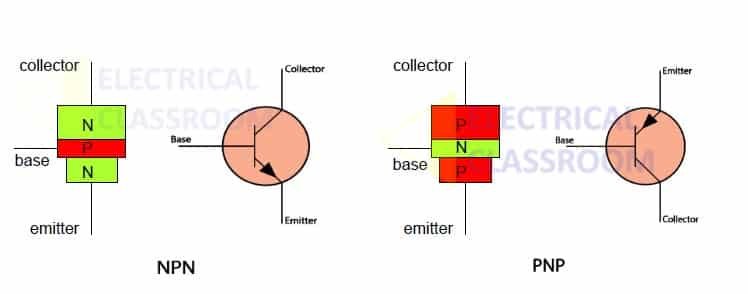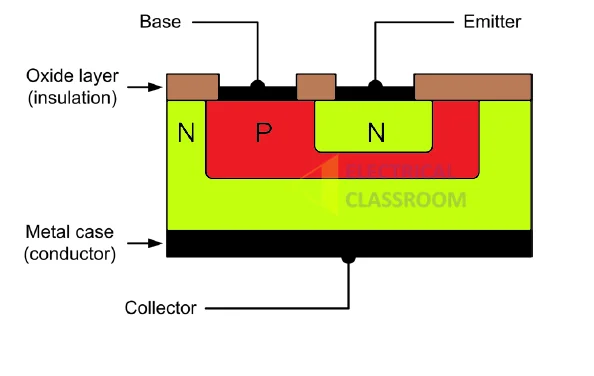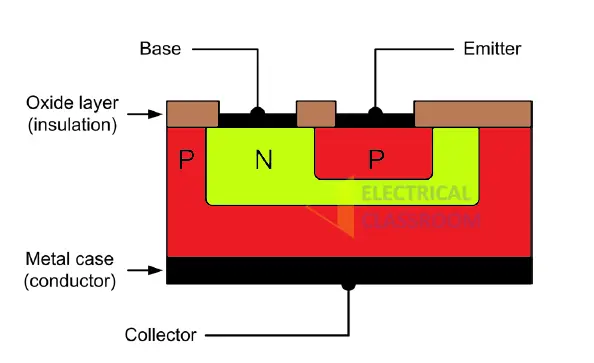The bipolar junction transistors exist as NPN and PNP types. This article intents to help you understand the difference between these two types and how to use them in a circuit. Also, this will be helpful to automation engineers and instrumentation engineers in understanding 3 wire sensor connections.
Transistors are made by combining two types of semiconductors: n-type and p-type. The n-type semiconductors carry electron donor atoms and p-type semiconductors carry electron acceptor atoms (holes).
NPN transistors: NPN stands for Negative Positive Negative. Contains two regions of n-type semiconductors with a p-type semiconductor in the middle.
PNP transistors: PNP stands for Positive Negative Positive. Contains two regions of p-type semiconductors with a n-type semiconductor in the middle.
PNP and NPN transistors do perform in a similar way when used in a circuit. But the polarity of voltage source connections and the direction of current flow differs. In most places, NPN transistors can be replaced with PNP and vice-versa but the polarity of the power supply needs to be changed.

A bipolar junction transistor is a current controlled device. The output of the BJT can be controlled by controlling the base current.
Comparison of NPN and PNP transistors
| NPN | PNP | |
|---|---|---|
| Terminal Polarity | Emitter – Negative Base – Positive Collector – Positive | Emitter – Positive Base – Negative Collector – Negative |
| Load Connection | Load is connected between positive and the collector. | Load is connected between emitter and ground. |
| Direction of conventional current | The direction of conventional current flow is from the collected to the emitter. | The direction of conventional current flow is from the emitter to collector. |
| Majority charge carriers | Electrons are the majority carriers in NPN transistors. | Holes are the majority carriers in NPN transistors. |
Difference between NPN and PNP in terms of construction
NPN vs PNP: Difference in connection for sensors
The major difference between NPN and PNP lies in the way it is used in the circuit. From the sensor point of view, sensors with NPN output configuration acts as sinking output and those with PNP output configuration acts as sourcing output.

Read More: Digital I/O and Analog I/O , Bipolar Junction Transistors

